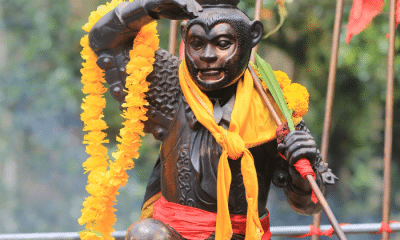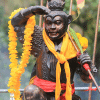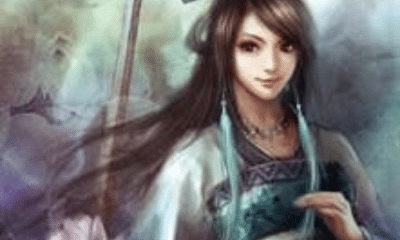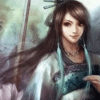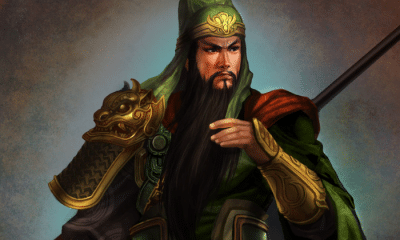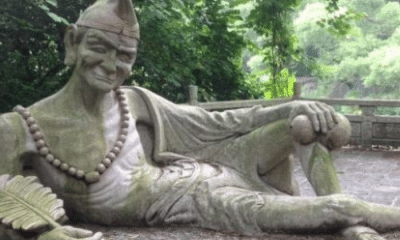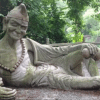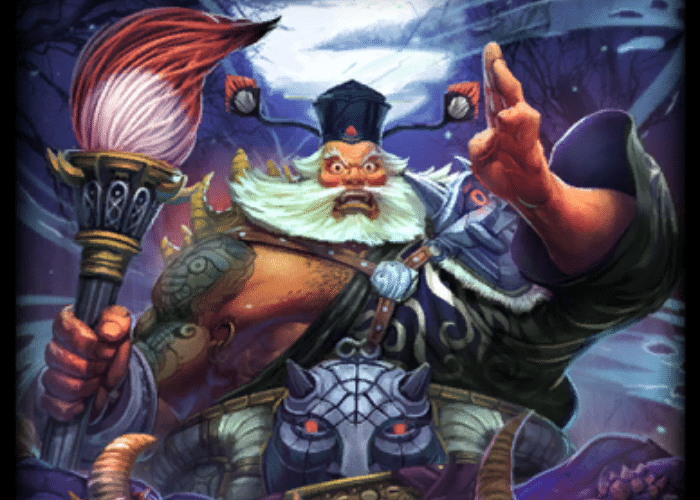
Chinese
Zhong Kui: The Vanquisher of Evil
Zhong Kui: The Vanquisher of Evil
Zhong Kui is one of the most well-loved folk heroes of Chinese mythology. Read on to find out how a disgraced scholar won an army of demons!
In Imperial China, a man’s fortunes could be made or lost based on the result of one test.
The imperial examinations were required of all men who sought to earn a position in the government. They measured knowledge of the law, history, mathematics, culture, and religion to choose the most well-learned scholars for civil service.
A good score could open up new opportunities for any intelligent man. The story of Zhong Kui, however, showed that exam results were often not the only factor in career success.
Cast aside by the emperor in spite of his excellent scores, Zhong Kui was so furious and frustrated that he killed himself at the palace gates. This should have earned him eternal punishment, but a more powerful ruler would soon see his potential.
Zhong Kui was elevated to a position of power and leadership after his death. With an army of demons at his command and orders to control the ghosts of the underworld, he vowed to protect even the people who had done him wrong.
Zhong Kui and the Eighty Thousand Demons
According to legend, Zhong Kui was once a top student.
He and his childhood best friend, Du Ping, traveled from their hometown to the capital to take the imperial examinations. This would be their only opportunity to earn positions that would put them close to the seat of power.
These exams set the course of a man’s career in the imperial government. Those who scored well would earn a position in the emperor’s court and become wealthy and influential members of the bureaucracy, while those who did poorly would be excluded from all but the most menial positions.
It was commonly known that the most coveted positions typically went to the sons of well-regarded noble families, but the exams still provided opportunities for less renowned men like Zhong Kui and Du Ping. Even a relatively low position in the imperial court represented a major change in social status, influence, and wealth.
He excelled in all areas of study and rightfully earned the title of top scorer, beating out every other young man who took that year’s exams. This honor, however, was soon unjustly stripped from him.
Zhong Kui was an unattractive man with a scarred and disfigured face. According to some stories his appearance was not even so dramatic; the rejection was based on messy hair and a square face.
Because the imperial court valued beauty as much as talent, the emperor refused to give him the place he had earned. Even near-perfect grades did not make up for his unpleasant features.
Zhong Kui was so furious that he threw himself against the palace gates over and over until his head was broken. He died locked out of the court that his scores should have earned him a place in.
Du Ping buried his friend with the utmost respect and honor. He knew, however, that as someone who committed suicide Zhong Kui was doomed to punishment in the underworld.
Zhong Kui appeared before King Yan, the ruler and judge of the dead.
Unlike the emperor, Yan saw potential in Zhong Kui. He recognized that he was exceptionally intelligent and had a vast knowledge of the law.
Although his manner of death had doomed him, King Yan instead offered Zhong Kui a position of great authority in the underworld.
He was given the title King of Ghosts and tasked with hunting down spirits who strayed from the underworld. His duty was to maintain order over all ghosts.
This was also a position of military leadership. Zhong Kui had command over an army of eighty thousand demons. He could send those after spirits who broke the laws of the underworld and they would do his bidding without question.
Zhong Kui vowed to use his new position to protect all people, including the emperor who had spurned him, from ghosts and malevolent spirits.
In addition to this protection, the King of the Ghosts had one boon to give.
He returned to his hometown to be with his family for the celebration of the New Year. They were shocked to see him and to learn about his newfound status in the underworld.
Before he returned to his duties, Zhong Kui repaid his friend, Du Ping, for the care and honor he had shown at his burial. He gave his sister to Du Ping as his wife, uniting their families.
My Modern Interpretation
For many centuries, Zhong Kui was one of the most popular protective deities of Chinese culture. His story was so well-loved that it even traveled beyond China.
He became a well-known figure in Japan, as well. There, his name is Shoki but his shameful death and elevation to power in the underworld remain unchanged.
In both countries, he is one of the deities painted on doors of businesses, temples, and homes to provide protection.
Such images are thought to scare away evil spirits that mean harm. Men, too, are thought to be affected by such painted figures if their intentions are wicked.
Because he is a warrior himself and can summon an army of supernatural creatures, he is believed to be one of the most powerful protective deities in existence.
Businesses in China and other parts of Asia specifically hope that Zhong Kui will protect locations that have highly valued goods. This belief may be tied to the fact that he sought access to the imperial court, the center of Chinese wealth and economic power.
Believers in China also pay special care to Zhong Kui on New Year’s Day. Because he returned to be with his family then, it is believed that he may make special trips to Earth on holidays to offer protection for the coming year.
He also protects those who are not held in high esteem in some areas of their lives. Because he was shut out of the imperial court for his appearance, Zhong Kui takes special care of those who are marginalized by society.
The story of Zhong Kui also serves as an inspiration to those who do not have access to the highest rungs of the social ladder.
While his suicide nearly resulted in damnation, Zhong Kui was eventually recognized for his abilities. The emperor passed him over but a more powerful ruler the king of the entire underworld, saw his true potential.
Zhong Kui’s myth can therefore be seen as a source of inspiration and comfort in times of struggle. While disappointment and frustration may be overwhelming believers can hope that they, like Zhong Kui, will someday have a change in fortune.
In Summary
Zhong Kui was an intelligent young man who earned near-perfect grades in the competitive imperial examinations. He was stripped of his accomplishments and rejected for a place at court, however, because he was not attractive.
In anger, Zhong Kui threw himself against the palace gates until he broke his skull. He died in a tragic and dramatic suicide.
His best friend buried him respectfully, but his manner of death meant Zhong Kui would be consigned to punishment in the underworld. When he was judged, however, this fate was changed.
The King of the underworld recognized his intelligence and potential. He offered Zhong Kui a place in the bureaucracy of Hell even though he had been denied one on Earth.
Zhong Kui was given dominion over all ghosts. He was charged with controlling them and capturing any who threatened the world of the living.
To help in this task, he was also given command of an army of eighty thousand ghosts.
He returned to Earth once more, on New Year’s Day, to visit his family and thank his friend. Then, Zhong Kui viewed to protect all men, even the emperor who had rejected him, from malevolent spirits.
Zhong Kui is still revered as a protective deity in both China and Japan. His image is painted on doors to ward off evil spirits and bad luck.
The story of Zhong Kui not only offers a source of protection against evil, but also of inspiration. Those who are excluded from positions of power, status, or wealth through no fault of their own can take comfort in the hope that one day they, like Zhong Kui, will be recognized for their talents.


